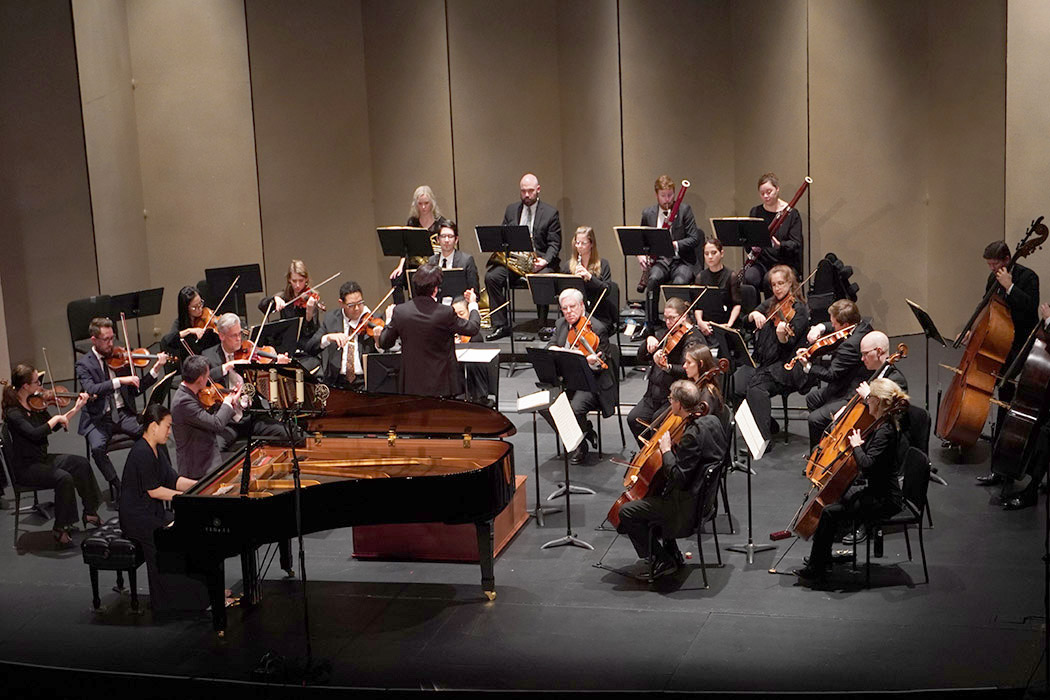Sunday afternoon’s Knoxville Symphony Orchestra’s Chamber Classics concert at the Bijou was not “Mostly Mozart,” but it was—at least—“partly Mozart” in much the same clever spirit and variety that has been showcased in the notable long-running summer music festival in New York City. KSO Maestro Aram Demirjian programmed an afternoon of three works that were separated by only 20 years or so and represented something of a bridge between Classicism and Romanticism. Demirjian opened with one of Gioachino Rossini’s most charming overtures, the bright and amusing overture to Il Signor Bruschino. The featured work was the Mozart Piano Concerto No. 27 in B-flat—the composer’s last—with KSO keyboardist Emi Kagawa as soloist. After intermission, Demirjian and the orchestra followed up the Mozart with Franz Schubert’s Symphony No. 5, a work that has the inspiration of Mozart—and its reduced instrumentation— infused into its very soul.

Written in the composer’s final year, Mozart’s Piano Concerto No. 27 shares qualities with many of his last works, qualities such as a sublime simplicity and lyrical clarity. Kagawa and Demirjian took a beautifully introspective point of view with both a measured tempo and subtle dynamics, allowing the lyricism to flow elegantly rather than tumble. Tinges of melancholy were mixed with cheerful pronouncements; Kagawa’s articulation throughout was sensitive and deliberate in its design, but without sacrificing melodic fluidity or her ultimate interpretative destination. The second Larghetto movement’s melodic simplicity—reminiscent of the slow movement from the No. 20—was handled beautifully by Kagawa with dream-like touches punctuated by restrained drama.
The concluding Schubert Symphony No. 5 was a lovely outing for Demirjian and the orchestra, its Mozartean interplay of strings and woodwinds surprising at just the right moments and in just the right way. However, the symphony had a crispness and a heightened energy that the preceding concerto had only begun to touch on. In this sense, the two works were the perfect companions for the afternoon program.








